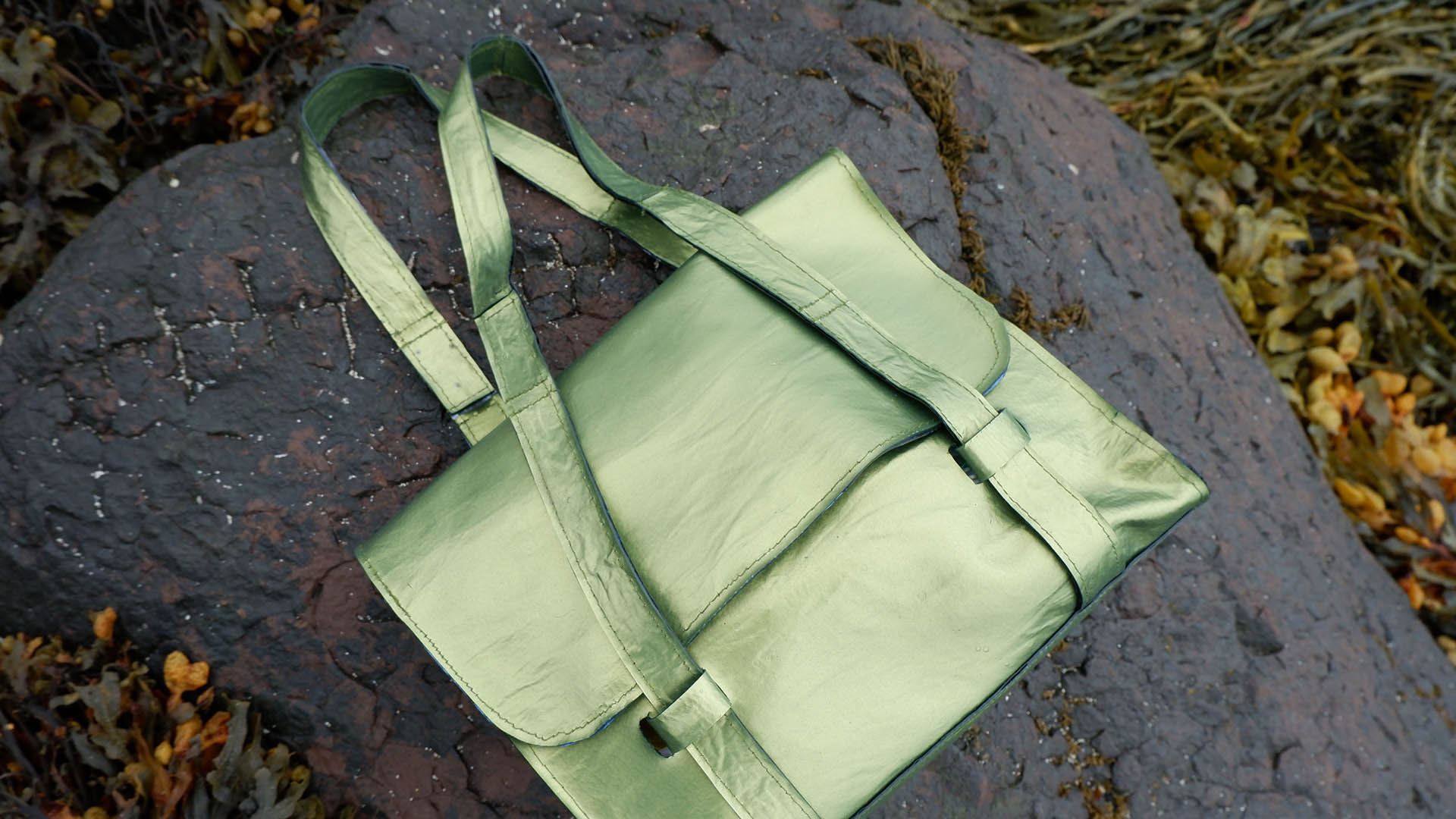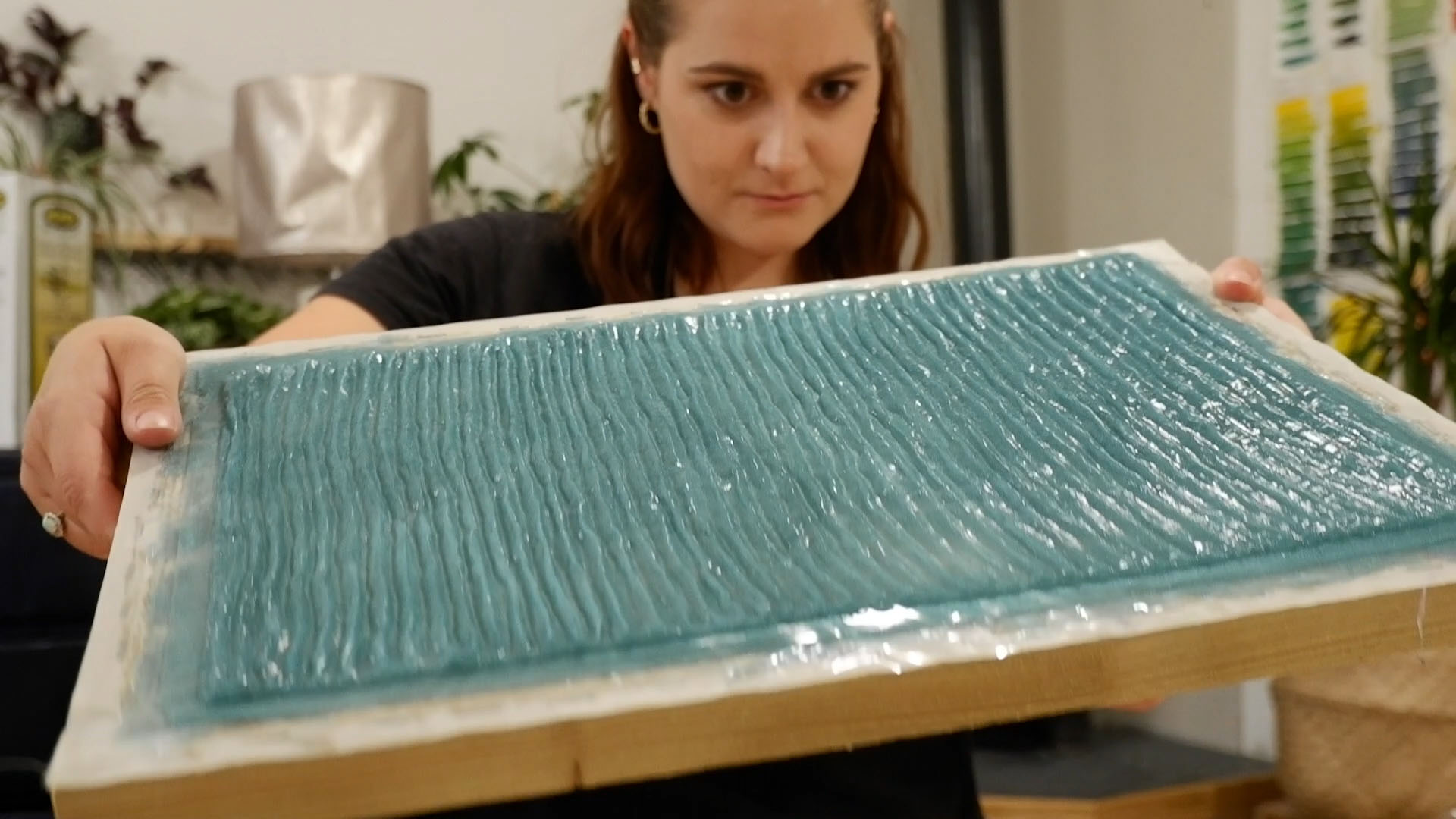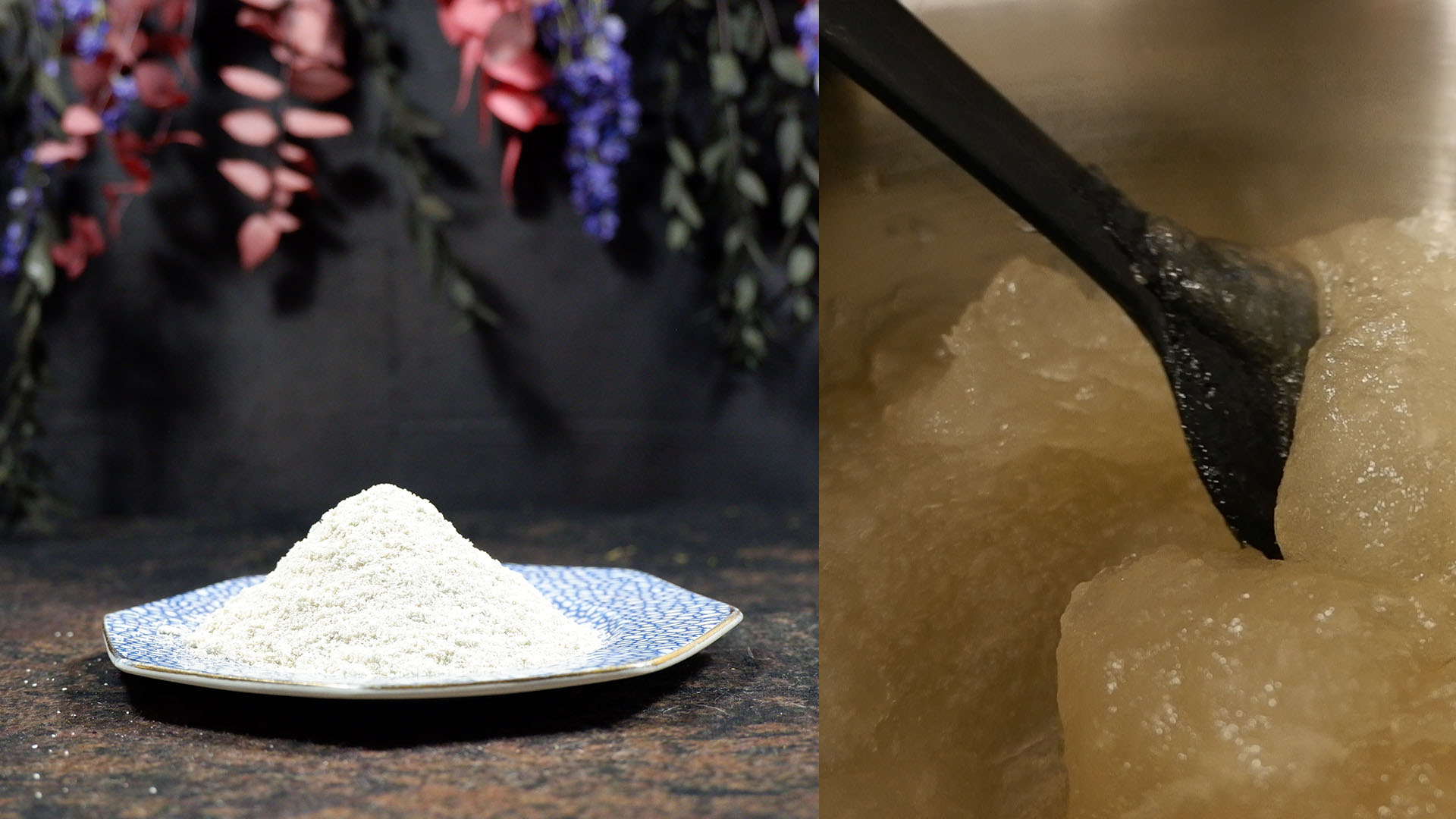Enterprising Huddersfield student Anna Watkins is taking her innovative use of seaweed in a range of products to the next level after being awarded funding for research into how to scale up her production process.
Anna Watkins makes a biobased alternative to leather from seaweed and has used it to make tablet and phone cases, wallets, lampshades and much more from the malleable plastic. She is now developing it as a sheet material to sell to fashion brands and designers.
Having used pots and pans to mix the jelly-like substance in both her own student kitchen and in her parents' house in Cumbria during various lockdowns as an undergraduate, Anna realised that she could not continue on this limited scale after starting her MSc in Product Innovation & Textiles.
Now her enterprise, Uncommon Alchemy, has been awarded £50,000 by Innovate UK's Young Innovators Next Steps Award, building on initial £5,000 from its Young Innovators programme during Anna's degree. It is the first time that Innovate UK has run this follow-on award to further support Young Innovators Award recipients, and as well as supporting Anna's research it will include support from a business mentor.
 A handbag made from the seaweed leather that Anna works with
A handbag made from the seaweed leather that Anna works with "The project is looking at pilot-scale production of the material," says Anna. "Everything up to this point has been craft-based, it is all is mixed and made by hand, which is not very scalable or commercially viable.
"The point of the project is to look at what pilot-scale production could look like, what kind of industrial processes could be applicable and required, the costs involved and then starting to test those in a physical setting."
Heating dried, powdered seaweed with other environmentally friendly materials produces a highly malleable plastic in just a couple of minutes, which can then be poured into moulds or manipulated into shape.
The fashion industry's poor reputation for sustainability is one that Anna was keen to address, and having discovered the potential uses of seaweed together with materials like industrial textile wool waste she has taken her product in new directions.
 Anna with a mould of the seaweed leather while it is still in a malleable form
Anna with a mould of the seaweed leather while it is still in a malleable form But there was only so much she could do by herself, and now she hopes to find out how her innovative creativity can produce on a larger scale.
"Over the year, my focus has shifted from me making products with it to producing sheet material that I can sell to brands and designers," Anna adds. "The Young Innovators programme showed there was commercial scope for this to have more industrial impact than I had first realised. The scale of what I am looking at has changed quite dramatically, it's a big step and I am excited about where it is going to go.
"This kind of craft-based business has a limit in how you can scale it up. What I enjoy and am passionate about is the material development. I love design but it is the research and development and the problem solving around material innovation, how you solve that gap between craft and commercial scale, that is really interesting to me. Scaling up helps me get what I want but also realise that I want it to grow and get bigger than myself. Part of that is scaling the material up."
 Powdered seaweed and the jelly-like substance once mixed and heated
Powdered seaweed and the jelly-like substance once mixed and heated Having been forced to camp out in her parents' kitchen in Cumbria during the pandemic, Anna is back in in Huddersfield and eager to take advantage of the reputation of the University and the Kirklees area in the fashion and textile industry.
"There is a wealth of textile expertise around here," she adds. "It is the textile heartland and it's why I wanted to come back here. There are resources and connections for technical textiles, and it's such a suitable place to be carrying out this research stage."






